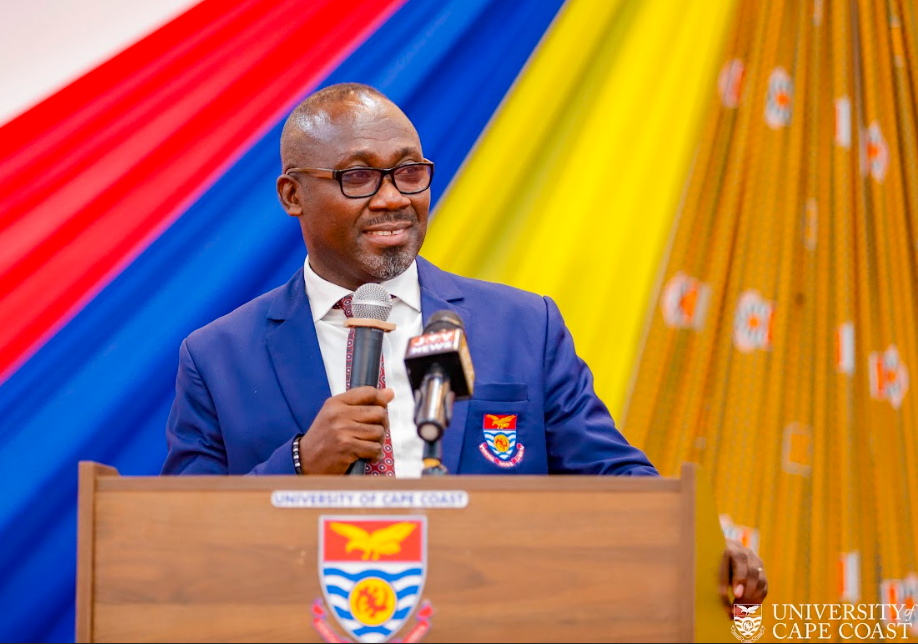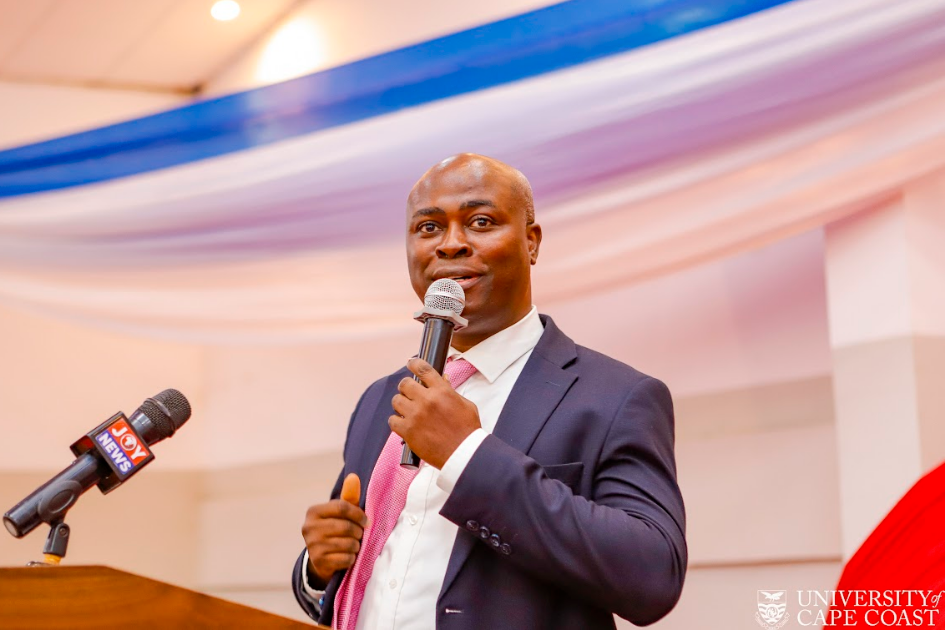The Pro Vice-Chancellor of the University of Cape Coast, Professor Dennis Worlanyo Aheto has reaffirmed the university’s commitment to innovation, ethics, and academic excellence, highlighting the growing role of Artificial Intelligence (AI) in reshaping business landscapes globally.
He reflected on the evolution of business education and the urgent need for institutions and professionals to embrace technological innovation, particularly Artificial Intelligence, to remain competitive in an increasingly digital economy.
Speaking at a public lecture organized by the School of Business as part of its 50th anniversary celebrations under the broad theme: University of Cape Coast School of Business @ 50: Expanding the Frontiers of Business Excellence, he challenged the academic and business communities to integrate AI literacy into their curricula and operational strategies.

He reemphasize the importance of integrating emerging technologies into business curricula.
He also described the need for AI literacy among students as essential, not optional, for navigating the modern marketplace.
The Pro Vice-Chancellor therefore encouraged stakeholders to rise to the occasion, stating that preparing students for AI-driven futures should be a collective institutional responsibility, not a luxury.

The guest lecturer, Dr. Stephen Moore of the the Department of Mathematics at the University of Cape Coast called on Ghanaian businesses and institutions to embrace Artificial Intelligence (AI) as a strategic necessity for long-term growth and competitiveness.
He underscored the urgent need for local industries to harness AI to optimize operations, enhance customer experiences, and drive economic transformation
Speaking on the topic: Artificial Intelligence and Business Solutions, he indicated that AI is not a futuristic luxury but a present-day tool that has become central to how businesses operate globally.

He said Artificial Intelligence is about amplifying human capabilities, enhancing speed, precision, and insight in decision-making and operations.
He explained that businesses across sectors, from agriculture and education to healthcare, finance, and logistics, could benefit immensely from AI-powered systems.
He cited applications such as virtual assistants in customer service, AI-driven analytics for marketing, fraud detection in finance, and predictive tools in logistics as examples of how AI is already delivering value in advanced economies.
According to Dr. Moore, data is “the new oil” emphasizing without reliable, ethically sourced data, any AI system is bound to fail.
He urged businesses to establish data governance structures to ensure transparency, privacy, and compliance with both local and international data regulations.
Dr. Moore went on to advocate for a national AI strategy, pointing to African countries like Rwanda and Kenya that are making deliberate moves to integrate AI into national development planning.
Read also: US Librarian Urges Ethical AI Use Among University Students
Source: Anthony Sasu Ayisadu/ATLFMNEWS




























